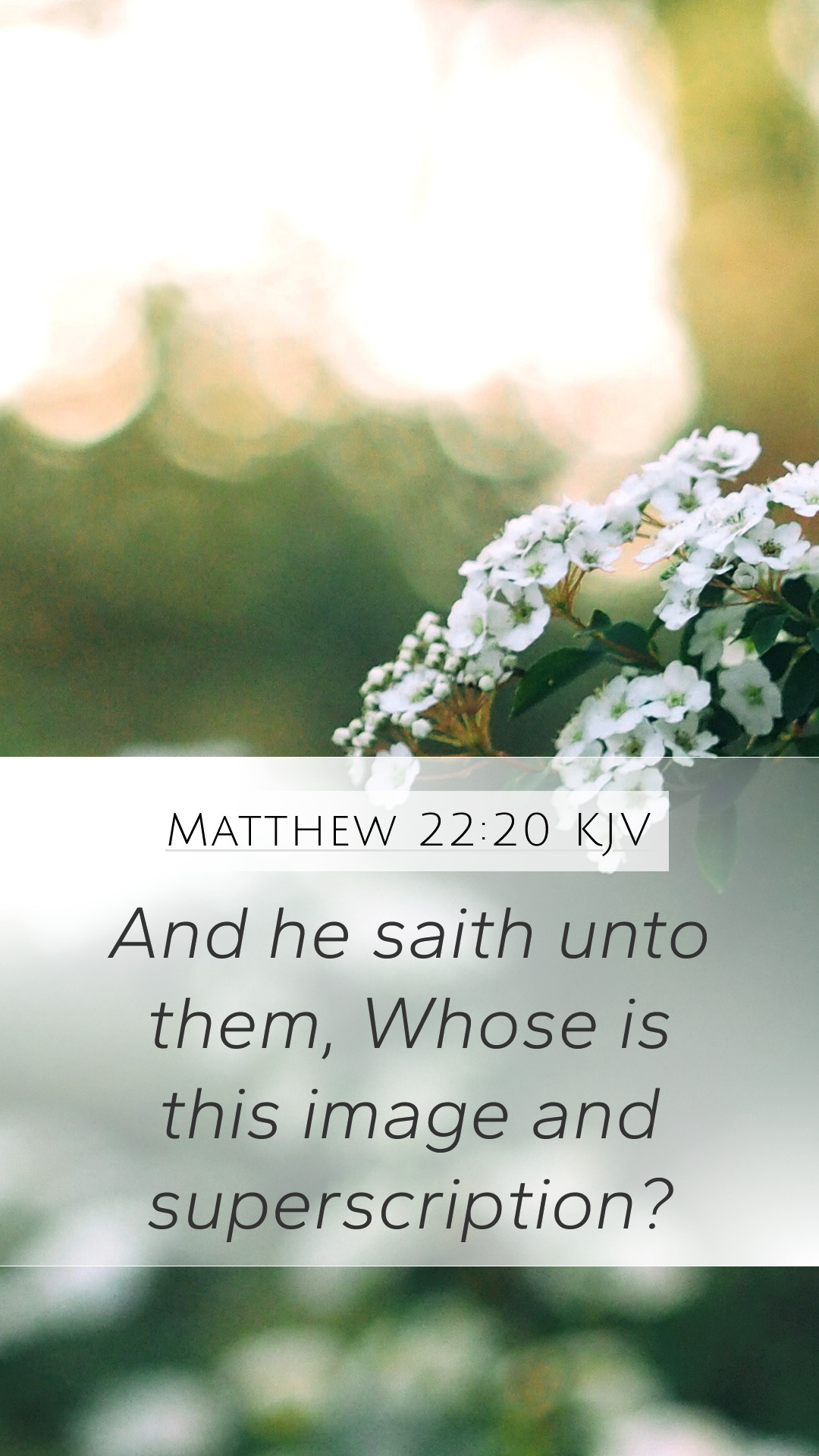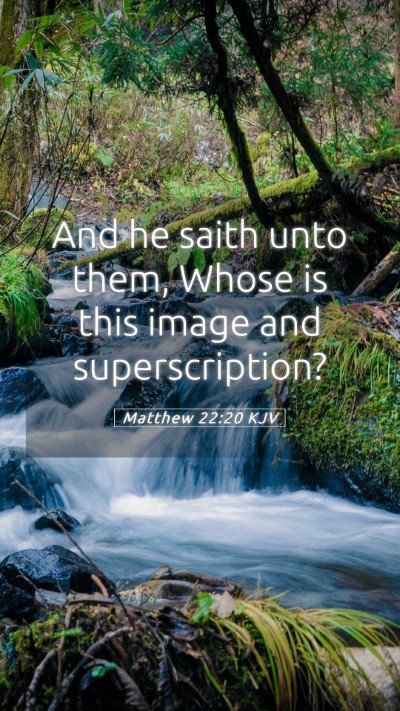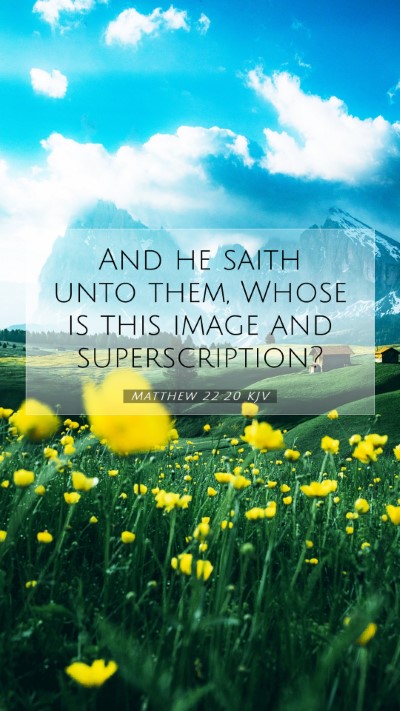Understanding Matthew 22:20
Bible Verse: Matthew 22:20 - "And he saith unto them, Whose is this image and superscription?"
Overview
Matthew 22:20 is a pivotal moment in the New Testament that encapsulates significant themes of authority, responsibility, and the relationship between earthly and divine realms. In this passage, Jesus is engaging with the Pharisees and the Herodians, challenging their perceptions and expectations regarding political and religious obligations.
Commentary Insights
-
Matthew Henry's Commentary:
Henry emphasizes the context of this question posed by Jesus, suggesting that it serves to reveal the authority of the Roman state and, by extension, the need for compliance to earthly governance. Yet, he also points towards the underlying requirement that God's authority supersedes human authority, thus leading to a dual responsibility of believers.
-
Albert Barnes' Notes:
Barnes points out that the image and superscription refer to the Roman coin, which indicates whose image it bears. This reflects the broader theological idea that people are made in the image of God and therefore owe their lives and allegiance first to God. The intricate interplay of earthly and heavenly citizenship is brought to light through this inquiry.
-
Adam Clarke's Commentary:
Clarke provides an exegesis on the technical aspects of Roman taxation and the implications of Jesus’ question. He explains that by recognizing the image, the listeners are being reminded of their obligations, suggesting that while taxes are owed to Caesar, their spiritual allegiance is owed to God alone.
Key Themes
This verse encapsulates several key themes that are critical for understanding both the sociopolitical climate of Jesus’ time and the theological implications for believers today:
- Authority: The image of Caesar symbolizes secular authority, while the question implies the higher authority of God.
- Responsibility: Followers of Christ are to navigate their civil duties while maintaining their spiritual commitments.
- Dual Citizenship: Christians are reminded that they belong to both the earthly realm and the kingdom of God, necessitating balance in their responsibilities.
Application for Believers
Matthew 22:20 can be applied to the lives of believers today by encouraging a thoughtful consideration of where their loyalties lie. It challenges individuals to think critically about their societal obligations, inviting them to engage with their communities while remaining grounded in their faith.
Reflecting on this verse prompts contemplation on how one's faith informs one’s actions in public life, and how a believer can uphold their spiritual integrity while being a responsible citizen.
Bible Study Insights
For those involved in bible study groups or those seeking online bible study, Matthew 22:20 serves as a focal point for discussions on the proper balance of faith and works, and the dynamics of living in a secular world. Here are some bible study tools and bible study resources to help deepen your study:
- Bible study guides focusing on New Testament teachings
- Historical context explorations of Roman governance and its impact on Jewish society
- Discussion on the significance of images and symbols in biblical texts
Cross References
Related verses that deepen the understanding of Matthew 22:20 include:
- Romans 13:1-7 - Discusses submission to governing authorities.
- Genesis 1:27 - Speaks to humanity being created in God's image.
- 1 Peter 2:17 - Encourages respect for all people while honoring God.
Conclusion
Matthew 22:20 offers profound insights into the nature of authority and responsibility for followers of Christ. It calls for a balance of loyalty to God and to society, reinforcing the notion that while we navigate the worldly realm, our ultimate allegiance belongs to our Creator.


